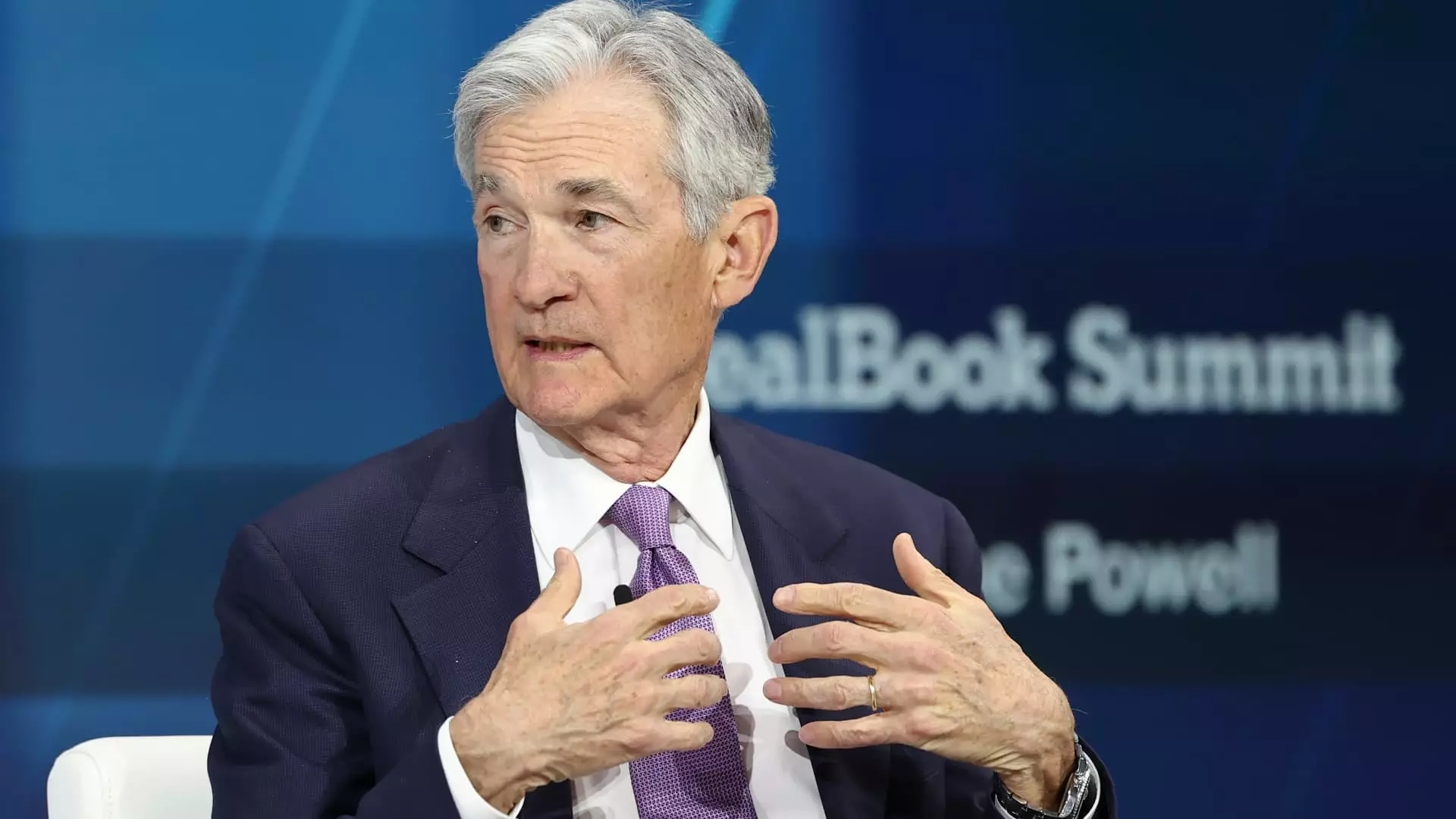Bitcoin has taken the financial world by storm, but recent developments suggest that the admiration for the cryptocurrency may have received a boost from an unexpected source: Jerome Powell, the Chair of the Federal Reserve. His remarks during the recent DealBook Summit not only sparked conversations about the role of digital currencies but also appeared to instill a renewed sense of confidence among investors, contributing to a considerable increase in Bitcoin’s value. This article delves deeper into Powell’s statements, their ramifications for Bitcoin, and the broader implications for both traditional and contemporary asset classes.
In his recent address, Powell highlighted his stance on Bitcoin, noting that as the leader of the Federal Reserve, he is prohibited from owning any cryptocurrency. This acknowledgment implies a crucial layer of integrity in regulatory proceedings, demonstrating a commitment to neutrality in the burgeoning digital asset landscape. Furthermore, he expressed that the influence of the Federal Reserve in regulating Bitcoin and its counterparts is somewhat limited, suggesting that cryptocurrencies operate in a largely independent sphere from traditional monetary systems.
However, Powell’s comments also placed Bitcoin in a peculiar position within the financial ecosystem. His assertion that Bitcoin is not a rival to the U.S. dollar but a competitor to gold has provoked discussions about the cryptocurrency’s role as a speculative asset rather than a commonly utilized currency. His comparison to gold shifts the perspective of Bitcoin from merely a technological marvel to a potential alternative store of value, albeit one that is marked by volatility.
Cryptocurrency enthusiasts reacted promptly to Powell’s insights, resulting in an increase of approximately 4% in Bitcoin’s value shortly after his statements. With Bitcoin surpassing the $103,000 level, this surge indicates that Powell’s remarks resonated within the markets, affirming Bitcoin’s place in the broader investment conversation. Analysts interpret this as a significant endorsement for Bitcoin, suggesting that Powell’s acknowledgment brings a level of legitimacy that could attract more investors into the market.
Market strategist Joel Kruger from LMAX Group emphasized this change in perception, pointing out that likening Bitcoin to gold invites a broader acceptance and understanding of its potential. Notably, as gold remains a more established asset, valued at about ten times more than Bitcoin, there might be considerable room for price growth, reflecting a bullish sentiment among market participants.
The timing of Powell’s insights coincided with other political developments that have historically influenced the cryptocurrency market. Bitcoin experienced a robust uptick following the election of Donald Trump, whose pro-cryptocurrency rhetoric has continually spurred confidence among investors. This suggests that the interplay between regulatory changes and political sentiments forms a significant backdrop against which Bitcoin’s value fluctuates.
Contrastingly, while Bitcoin climbed dramatically, gold showed comparatively muted performance over recent months. Despite a year-to-date rise of nearly 30%, the lack of volatility that gold showcases may reflect a need for different approaches to risk appetite among investors. Consequently, while traditional investors might stick with gold, those with a penchant for risk seem more inclined to venture into Bitcoin’s turbulent waters.
The unfolding narrative surrounding Bitcoin underscores a critical need for a balanced regulatory framework. The nomination of Paul Atkins as chair of the Securities and Exchange Commission (SEC) could signal a more favorable environment for cryptocurrencies, given his established support for the sector. This regulatory clarity is paramount as it may ease the way for institutional investments, thus fostering a landscape where Bitcoin can thrive.
As the digital currency market continues to mature, the challenge lies in integrating robust regulatory measures that protect investors while also nurturing innovation. Powell’s recent comments may serve as a landmark moment, suggesting to stakeholders that Bitcoin is not merely a fleeting trend, but a legitimate contender in the realm of asset investment.
Ultimately, the interplay of sentiment, policy, and market dynamics presents an exciting narrative for Bitcoin as it seeks to carve its niche among established financial instruments. The future looms large, and the interplay between traditional currencies, cryptocurrencies, and regulatory stances will undoubtedly shape the next chapter in this ongoing saga.

Leave a Reply